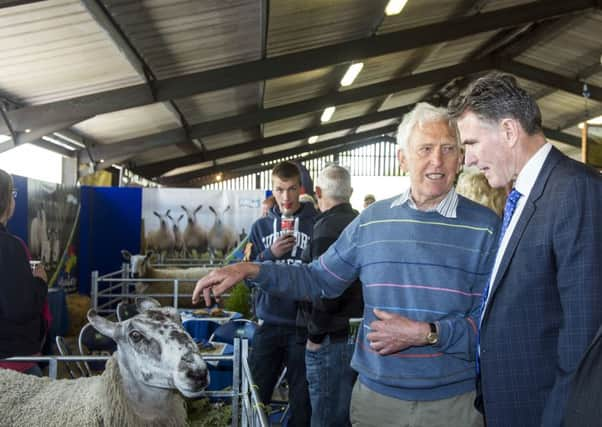RBS highlights '˜cyclical' nature of farm finances


However, representatives of the bank – major sponsor at yesterday’s Scotsheep event – said that such cyclical calls on finance were not unusual in the industry.
“There was probably a smaller than usual investment in capital areas as farmers tightened their belts and required funds to tide them through,” said Jimmy McLean, chairman of agriculture with RBS.
Advertisement
Hide AdAdvertisement
Hide Ad“However, rather than being a reflection of the performance of individual businesses, this is more likely to be due to the cyclical down-turn in farmgate prices.”
Also attending the event, RBS chief executive Ross McEwan said that while there had always been ebbs and flows in the financial returns in the agricultural sector, even at the bottom of the cycle some farmers could see the opportunity to expand their businesses.
He also said that there was a requirement for increased productivity in the agricultural sector – not just in Scotland but on a global basis: “Getting the most out of every acre is the best way for agriculture to improve its returns- and producers should be looking to doing this as quickly as possible.”
He said that the operation run by the Campbells who were hosting the event was an excellent example of how efficiency could improve returns.
